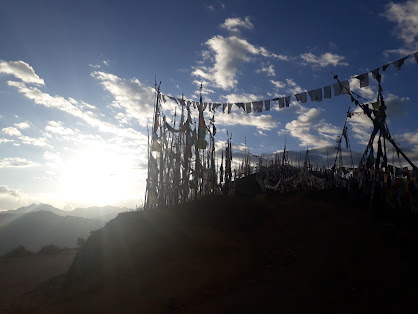I have a strange reputation among my wife’s kins for ‘shamelessly’ calling every one of her female cousins as my mathang. At first, it made them uncomfortable. But now they are beginning to accept it; either they found wisdom in my justification or they found me too crazy to argue with.
I was only stating the obvious that everyone from my wife’s side is my in-law therefore all her cousins become my mathang but by some crazy logic, they say my wife’s mathang (some of her cousins and in-laws) become my ana or ausa and that I must maintain ‘ngotsha’ with them. Wait what? Just because all my sisters become her mathang doesn’t mean all her mathang become my sisters.
What's Ngotsho?
Ngotsha perhaps has no English equivalent word because the concept doesn’t exist in the western world or maybe I am not aware of. To put it simply, I can’t tell a dirty joke in front of someone with whom I am supposed to maintain ‘ngotsha’ relation, like my mother, sister and other female relatives. But why can't I have some fun with my wife’s mathangs?
Let’s understand the meaning of Mathang and Khotkin. Mathang means sister in-law, and Khotkin means brother in-law. So far so good. It becomes little complicated when they are also used to refer to the children of your maternal uncle (ashang) and paternal aunty (ani).
Your ashang and ani’s children are your first cousins as much as the children of your paternal uncles (aku, Apchi) and maternal aunties (Azim, Amchi). But somehow this old tradition has divided the first cousins into two, making one a lesser cousin than the other. With one group, you are respectfully maintaining ngotsha, and with the other, you are quite the opposite, mischievous and flirty.
With education, cross culture marriages, and restriction from the law, it’s slowly becoming a thing of the past but not long ago, in the eastern part of the country, your mathangs and khotkins were considered the preferred candidates for marriage. Even the parents encouraged it. In fact, your real Ashang and Ani’s children are branded as Serga Mathang and Serga Khotkin, meaning golden cousins or golden opportunity, to put bluntly.
The fact that you also call your father in-law ashang, and mother in-law Ani is a not-so-subtle indication that that your maternal uncle can be your father in-law or your paternal aunty your mother in-law.
So, my argument with my mathang is, how can they call their first cousins and immediate blood relatives as mathang and khotkin while questioning my sanity over calling my marital relatives as mathang?
Isn’t it? I am, therefore, not going to maintain ngotsha with my wife's mathang. In fact, her mathang will be my double mathang.
When I heard of Dzongkha Development Commission (DDC) borrowing and approving Mathang and Khotkin as dzongkha words and adding them in dzongkha dictionary I immediately wanted to know what the words would mean in Dzongkha;
I would personally lobby for them to mean just in-laws and not cousins. Let all cousins be cousins and take away the naughty connotation it gives by calling them mathang.
Disclaimer: The culture of marrying Ashang's daughter seemed to have existed even in the western part of the country. We have a living example in my village, but we are not open or proud about it. Not anymore.













